In my previous blog, Lifestyle Medicine for Your Patients, in 2023, I explored the basic components of lifestyle medicine. In this blog, I would like to outline how these components are being discussed in the physical therapy research.
As a refresher, let's review the 6 basic components of lifestyle medicine according to the American College of Lifestyle Medicine (ACLM). Lifestyle medicine includes the following components:
- Nutrition
- Physical activity
- Restorative sleep
- Stress management
- Avoidance of risky substances
- Social connection
Now, let's look at some of the research and discussions in physical therapy.
First, an article by Berner et al in the Physical Therapy journal1 outlines strategies physical therapists can use to address the nutritional needs of patients.
Second, a systematic review by Rethorn et al in the Physical Therapy journal2 states that "With PA [physical activity] projected to decrease in the general population by an additional 20% by 2050, PA promotion is urgently needed to maximize physical therapists' impact on the health of society."
Third, a study by Nijs and colleagues in the Physical Therapy journal3 found cognitive behavioral therapy may be efficacious for sleep disturbances in chronic pain. A study in the Journal of Neurologic Physical Therapy4 found that sleep may impact motor learning in middle-aged and older individuals.
Fourth, stress management strategies may play a key role in helping patients manage anxiety and help in the recovery process. A case report by Bruflat et al in the Physical Therapy journal5 found that stress management may be used as an adjunct for chronic neck pain in the workplace.
Fifth, a descriptive cross-sectional survey by Pignataro et al in the Physical Therapy journal6 found that tobacco cessation counseling training is needed in entry-level physical education.
Sixth, an article by Bezner in the Physical Therapy journal7 states that "positive physical wellness (eg, increased physical fitness) can produce a positive impact on emotional wellness (eg, self-esteem), and poor social wellness (eg, social connectedness) can produce a negative impact on psychological wellness (eg, increase depression)."
In addition to the 6 pillars of the ACLM, there are two other related areas for therapists to explore.
One is the utilization of nature-based rehabilitation. An article by Vibholm et al in the Physiotherapy Theory and Practice8 found that therapists "perceived the natural environment as an extended room for training and activity, as a means for targeted rehabilitation and beneficial to the patients."
The arts in rehabilitation may serve to enhance physical therapist practice. A review article by Brown et al in the Physical Therapy journal9 found that "combining the arts with physical therapist practice amplifies not only psychomotor but affective and cognitive outcomes as well. The arts have applicability across broad populations (eg, chronic pain, neurologic dysfunction, respiratory conditions)."
Based on the selected research reviewed, it is evident that physical therapists have used various lifestyle and integrative medicine components in clinical practice. For comprehensive and holistic patient care, physical therapists should consider combining all the lifestyle medicine pillars and integrative approaches to provide a multimodal approach for patient care.
In conclusion, lifestyle medicine and other integrative strategies may help enhance patient recovery and overall quality of life.
Key Words: nutrition, physical activity, nature-based therapy, art-based therapy, holistic health
References
- Berner P, Bezner JR, Morris D, Lein DH. Nutrition in physical therapist practice: tools and strategies to act now. Phys Ther. 2021;101(5):pzab061. doi:10.1093/ptj/pzab061
- Rethorn ZD, Covington JK, Cook CE, Bezner JR. Physical therapists' knowledge, skills, beliefs, and organizations impact physical activity promotion: a systematic review and meta-analysis. Phys Ther. 2022;102(3):pzab291. doi:10.1093/ptj/pzab291
- Nijs J, Mairesse O, Neu D, et al. Sleep disturbances in chronic pain: neurobiology, assessment, and treatment in physical therapist practice. Phys Ther. 2018;98(5):325-335. doi:10.1093/ptj/pzy020
- Al-Sharman A, Siengsukon CF. Performance on a functional motor task is enhanced by sleep in middle-aged and older adults. J Neurol Phys Ther. 2014;38(3):161-169. doi:10.1097/NPT.0000000000000048
- Bruflat AK, Balter JE, McGuire D, Fethke NB, Maluf KS. Stress management as an adjunct to physical therapy for chronic neck pain. Phys Ther. 2012;92(10):1348-1359. doi:10.2522/ptj.20110489
- Pignataro RM, Gurka MJ, Jones DL, et al. Tobacco cessation counseling training in US entry-level physical therapist education curricula: prevalence, content, and associated factors. Phys Ther. 2014;94(9):1294-1305. doi:10.2522/ptj.20130245
- Bezner JR. Promoting health and wellness: implications for physical therapist practice [published correction appears in Phys Ther. 2016;96(1):123]. Phys Ther. 2015;95(10):1433-1444. doi:10.2522/ptj.20140271
- Vibholm AP, Christensen JR, Pallesen H. Occupational therapists and physiotherapists experiences of using nature-based rehabilitation. Physiother Theory Pract. 2023;39(3):529-539. doi:10.1080/09593985.2021.2023927
- Brown EL, Gannotti ME, Veneri DA. Including arts in rehabilitation enhances outcomes in the psychomotor, cognitive, and affective domains: a scoping review. Phys Ther. 2022;102(4):pzac003. doi:10.1093/ptj/pzac003
Competing interests: Author of the book, The Lifestyle Medicine Toolbox.
Author Bio:
Ziya "Z" Altug, PT, DPT, MS, DipACLM, OCS, is a Board-Certified Orthopedic Clinical Specialist and a Doctor of Physical Therapy with 32 years of experience treating musculoskeletal conditions. He is also a certified lifestyle medicine professional through the American College of Lifestyle Medicine. Ziya has been a longstanding member of the American Physical Therapy Association and the Academy of Orthopaedic Physical Therapy. He is also a member of the American College of Lifestyle Medicine and his book, The Lifestyle Medicine Toolbox (Jessica Kingsley Publishers, London) was published on February 21, 2024.

